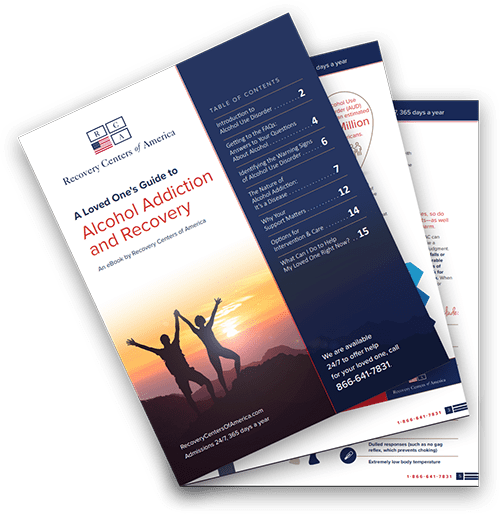More than 140,000 people die from alcohol-related causes annually
Alcoholism is a severe and life-threatening disease that affects millions of people worldwide. Despite the widespread cultural acceptance of alcohol, the reality is that alcohol is dangerous and harmful to one’s physical and mental health. The idea that moderate drinking is safe is, in fact, a myth. The National Institute on Alcohol Abuse and Alcoholism reports that alcohol use can lead to liver disease, cancer, heart disease, and gastrointestinal diseases, even in moderate amounts.
Contact Recovery Centers of America Today
If you are struggling with alcoholism, it is essential to seek medical help and support immediately. Recovery Centers of America’s team of medical and mental health professionals is here to provide comprehensive addiction care to help you overcome substance use disorder and achieve long-term recovery.
- Contact 1-800-RECOVERY to speak with a treatment advisor 24/7/365
- No cost intervention services available exclusively through RCA
- Verify your insurance benefits here
- One of our transportation specialists will pick you up wherever you are in 2 hours or less
Don’t wait another day to get the help you need. Contact the RCA team today to begin the journey towards a healthy, fulfilling life. We are committed to supporting you every step of the way, providing personalized treatment options and evidence-based therapies to help you achieve your goals.
Together, we can overcome alcoholism and build a brighter future.
Contact Recovery Centers of America now and take the first step towards long-lasting recovery.
Treatment
Recovery from alcoholism is possible with professional help, and support from family and loved ones. It’s essential to seek professional treatment to overcome alcohol addiction, and Recovery Centers of America provides comprehensive support and care that is both empathetic and effective.
At RCA, we identify the SOURCE of addiction and offer customized treatment that eliminates the SYMPTOMS and addresses the day-to-day societal CONTRIBUTORS that get in the way.
Our clinical treatment program includes:
- Diagnostic assessment: A healthcare professional will assess the severity of addiction, including physical and mental health, family history, and co-occurring disorders.
- Medically monitored detoxification in a safe and comfortable environment
- Individualized Treatment Plan: Addiction treatment can include a range of services, including medication-assisted treatment, behavioral therapy, group therapy, and family therapy.
- Skills-based coaching: The development of skills and strategies to prevent relapse and address triggers or temptations that may arise during recovery.
- Introduction to the 12-step program: Alcoholics Anonymous or Narcotics Anonymous can provide encouragement and support from others who have experienced a similar struggle.
- Alumni Services: A supportive community of individuals who are in recovery that offer continued support, networking opportunities, and resources to help maintain long-term recovery.
Our caring and experienced staff are dedicated to providing personalized care to each person struggling with alcoholism to promote a healthy and sustainable recovery.
Don’t let alcoholism control your life – contact Recovery Centers of America today to get the help you or your loved one needs to start on the path to recovery.
Alcohol Related Deaths
In the United States alone, there are roughly 261 alcohol-related deaths everyday.
1 in 10 deaths among working-age adults in the United States are due to excessive alcohol consumption
Alcohol is responsible for more deaths than all opioid overdoses combined
1 person dies from drunk driving every 52 minutes
How Alcohol Negatively Impacts Your Life
Physical
Alcoholism can cause severe health problems, including liver disease, heart disease, neurological damage, and cancer. Alcoholism can also contribute to gastrointestinal problems, pancreatitis, and an increased risk of infections. Chronic alcohol consumption can lead to severe dehydration, malnutrition, and even death
Psychological
Alcoholism can cause severe psychological problems, including depression, anxiety, and other mental health disorders. It can also impair judgment and lead to risky behavior, including driving under the influence, domestic violence, and other criminal activities. Moreover, alcohol can affect memory, cognitive function, and motor skills. It is common for alcoholics to experience interpersonal relationship difficulties and social isolation, further worsening their mental health.
Financial
Alcoholism can cause serious financial troubles for individuals and their families. The cost of alcohol can quickly accumulate, leading to financial burdens and devastating consequences like bankruptcy or loss of housing, which may further exacerbate mental health complications.
Social
Alcoholism can significantly impact interpersonal relationships by causing social isolation, family conflicts, and a lack of accountability. This can lead to broken marriages, estranged family relationships, and loss of friends, ultimately further impacting one’s mental health, and making recovery more challenging.

